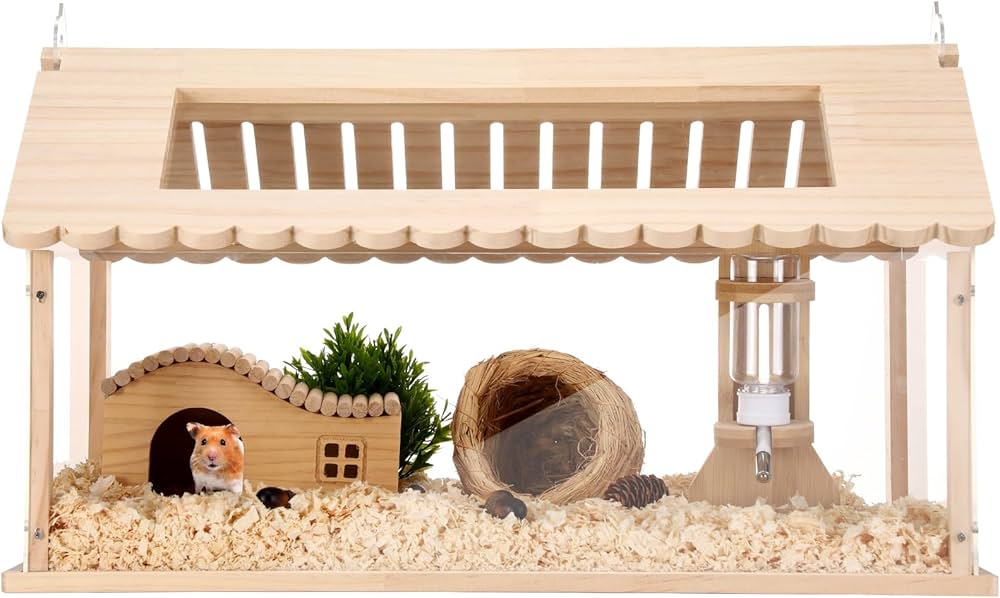Best Options for Hamsters with Unique Traits
Hamsters are beloved pets for many, known for their adorable appearance and playful personalities. However, selecting the best hamster for your lifestyle can be challenging, especially when considering their unique traits. Did you know that certain hamster breeds have specific characteristics that make them better suited for different types of owners? In this article, we’ll explore the most popular hamster breeds and their unique traits, along with essential care tips to help you choose the right one for your needs.
From the sociable Syrian hamster to the curious Roborovski, understanding your options means you can find a companion with the right temperament and needs for your household. By the end of this article, you will be equipped with the knowledge needed to make an informed decision about which hamster suits you best, factoring in aspects like personality, space requirements, and dietary needs.
Here’s what we’ll cover:
- Understanding Hamster Breeds
- Unique Traits of Different Hamsters
- Choosing the Right Hamster for Your Lifestyle
- Care Tips for Each Breed
- Frequently Asked Questions
- Wrapping Up

Understanding Hamster Breeds
There are several breeds of hamsters, each with its own personality traits, sizes, and care needs. The most common breeds include:
- Syrian Hamster: Known for their friendly demeanor and larger size.
- Dwarf Hamster: Smaller in size, these hamsters can be either Roborovski or Campbell’s dwarf hamsters.
- Chinese Hamster: Unique with a long tail and slender body; they have a calm personality.
Distinct Characteristics of Syrian Hamsters
Syrian hamsters are often favored due to their sociable nature. They can be quite friendly and are known to bond well with their owners. They are solitary animals and must be housed alone to prevent fighting.
Dwarf Hamster Behavior Insights
Dwarf hamsters are smaller and can be kept in pairs or groups. This breed is energetic and curious, often engaging in playful activities. They may require more space due to their active lifestyle.
Unique Traits of Different Hamsters
Understanding the unique traits of each hamster breed is crucial for making the right choice. Here are some characteristics to consider:
Size & Life Span
The size of your hamster affects not only the type of cage you’ll need but also its lifespan. Syrian hamsters typically live 2-3 years, while dwarf hamsters can live up to 3-4 years with proper care.
Personality Traits
- Syrian Hamsters: Generally, they are more laid-back and can be trained easily.
- Dwarf Hamsters: They showcase a more rambunctious and energetic personality that may require more exercise.
- Chinese Hamsters: Often shy, they prefer to observe their surroundings and may require a bit more patience from owners.
Socialization Needs
Socializing your hamster is vital. Syrian hamsters thrive on one-on-one interaction with their owners, while dwarf hamsters enjoy the company of their own kind, provided there is enough space in the cage.
Choosing the Right Hamster for Your Lifestyle
Before adding a hamster to your family, consider your lifestyle. Here are some tips on how to make the best choice based on your situation:
Space Considerations
Evaluate your living conditions. Syrian hamsters need larger cages due to their size, while dwarf hamsters need sufficient space to explore and play. Think about where you will place the cage and how much space is available.
Time Commitment
Each breed requires different amounts of social interaction and care. If you have limited time, a Syrian hamster might be the better option, as they enjoy interacting but can also entertain themselves.
Activity Level
Consider how active you want your pet to be. Dwarf hamsters are typically more energetic and would require more enrichment activities, while Syrian hamsters might be content with less activity.
Care Tips for Each Breed
Proper care is crucial for the health and happiness of your hamster. Here are some essential care tips tailored to each type.
Syrian Hamster Care
- Cage Setup: A spacious cage with tunnels and toys is essential.
- Diet: Feed a mix of commercial hamster pellets and fresh veggies.
- Handling: Regular gentle handling will help to socialize them.
Dwarf Hamster Care
- Cage Setup: Plenty of room for running and climbing is necessary; consider multiple levels.
- Diet: Similar to Syrian hamsters but also needs occasional seeds and fruits.
- Handling: Dwarf hamsters can be nippy; approach them consistently to build trust.
Frequently Asked Questions
What is the best hamster breed for kids?
Syrian hamsters are often recommended for children due to their sociable nature and ease of handling. They tend to be more tolerant of interaction.
Can I keep two hamsters together?
Dwarf hamsters can often be kept in pairs, but it’s essential to monitor them for aggression. Syrian hamsters should always be housed alone.
Wrapping Up
Choosing the right hamster involves understanding the unique traits and needs of each breed. By considering your lifestyle, space, and the care requirements of the various hamster types, you can make an informed decision.
For more insights on hamster care and tips, check out these articles: Hamster Care 101 and Choosing the Right Pet for Your Family.
Remember, no matter which breed you choose, providing a loving environment, proper care, and attention will ensure that your hamster leads a happy and healthy life!
